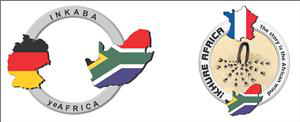Speaker
Mr
Oluseyi Abegunde
(University of the Western Cape)
Description
This study evaluated the magnitude of possibly leachable metals and predicted the AMD discharge over time, from Mogale tailings dam into the environs in Randfontein area, Witwatersrand Basin, South Africa. Drill core samples were analysed for multi-elements and evaluated using multivariate statistical and geochemical mass balance techniques.
The tailings dam lithology was grouped into four distinct layers. The uppermost oxidized layer is siliceous and contains the highest SiO2 (87.32%) contents, which is accompanied by the lowest contents in U, As, Zn, Ni, Co, and Cu. A downwards decrease in SiO2 (76.39%) contents occurs, coupled by an increase in U, As, Zn, Ni, Co, and Cu, reaching maximum contents in layer 3. Layer 4 is the least weathered horizon.
The cluster analysis grouped the samples into four sub-clusters based on the variation in SiO2 and Al2O3 contents. Factor analysis, which explained 83.542% of the total data variance, related the seven controlling factors of element distribution to the occurrence in ore elements (sulphides), silicates, mining additives and refractory minerals. The geochemical mass balance showed variable gain and loss of oxides and trace elements within each layer. Based on the variation patterns of the total sulphur contents and other mobile elements, about 0.164kg/tonne/yr(±0.02) of the tailings materials are leached yearly. Layer 1 is the most altered.
Keywords: Acid Mine Drainage; Assessment; Prediction; Weathering; Geochemical data; Geochemical mass balance; Multivariate statistics; Contamination
Primary author
Mr
Oluseyi Abegunde
(University of the Western Cape)
Co-authors
Dr
Abdi Siad
(Dept.Earth Sciences, University of the Western Cape)
Prof.
Charles Okujeni
(Dept.Earth Sciences, University of the Western Cape, Bellville (supervisor))
Ms
Iris Wu
(University of the Western Cape)

